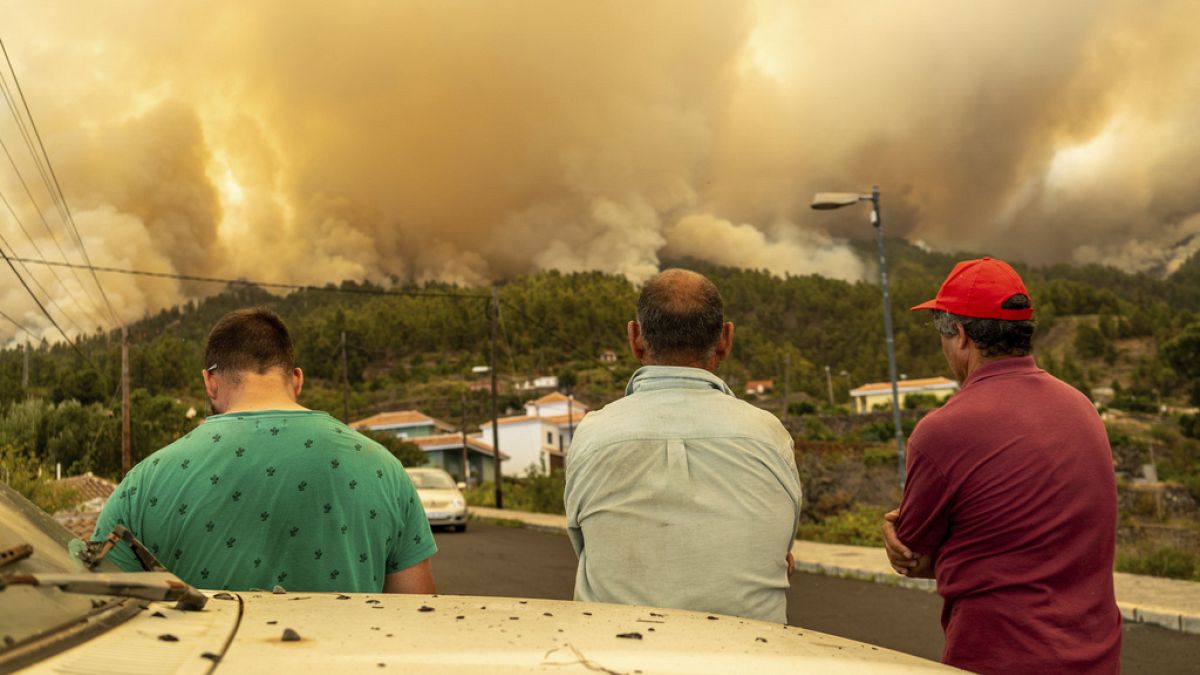Advertising
Observation of many heat waves that fall into most of Europe in the beginning of summer weeks, conclusions in July, published by the European Union Copernicus for climate, is not surprising.
The last month was the fourth warm July, registered in Europe, and the average temperature reached 21.12 ° C, which is 1.30 ° C higher than the average in July 1991-2020.
“There were some peripheral contrasts, as is often the case in Europe.” Julien Nicholas, the senior scientist in Copernicus, said Euronews. The month began extremely hot in most Europe, especially in the western part. “As he progressed, the temperature was slightly reduced, and the conditions became more moist in the western and central part of Europe. “
The “anomalies” that stood out in July were much higher than the average temperatures registered in Scandinavia, where the temperature reached 30 ° C for several weeks. “This is very important, and this is not the time when we expect them to be supported in these latitudes.” Meanwhile, in Turkey, the temperature reached 50 ° C.
Long -term tendency to increase temperature
One of the key conclusions of the report that at the global level July 2025 was 1.25 ° C higher than the estimated average value of 1850-1900, used to determine the pre-industrial level. In 21 out of the last 25 months, the average temperature of the world was 1.5 ° C or higher than this level.
This raises the question: Does this mean that the Paris Agreement, which was confirmed by all EU member states and is aimed at limiting a long increase in the average temperature to 1.5 ° C higher than the pre -industrial level?
“This is a question that is currently being discussed,” said Nicholas. “I think that we must remember that the Paris Agreement refers to a long average temperature of 1.5 ° C, which should not be overcome in order to avoid the most destructive and irreversible consequences of climate change. What we have seen over the past two years is temporary violations of this limit. ”
He explained that in general, a long -term average, is considered exceeded only when the level was violated by an average of 20 years – a period that is considered suitable for the characterization of climate and smooth out natural fluctuations in the global temperature.
“As soon as we reach this 20 -year average level of the world temperature above 1.5 ° C, we can consider that we exceeded the limit of the Paris Agreement,” Nicholas said.
The predictions of recent models show that this limit can be reached by 2030. “This is only a few years later. But we have not reached it yet. ”
Copernican scientists noted that the recent series of world temperature records has ended – for now. There will be periods of “cooling”, as in July 2025, when the average global temperature was “only” 1.25 ° C above the estimated average period of 1850-1900. This is due to the natural fluctuations in the climate.
“But this comes to adding a long -term heating trend that is directly related to the accumulation of greenhouse gases in the atmosphere.” In other words, climate change did not stop.
Catastrophic consequences
At the moment, climatologists regularly indicate the effects of the hot world observed in all corners of Europe. In July, deadly sudden floods fell in terms of Romania, while extreme heat died on the beaches in Italy.
“One thing that must be remembered is that these extreme climatic phenomena did not start two years ago, we see that they happen for many years,” said Nicholas. “We saw the consequences of climate change. It also includes the melting of the glacier and an increase in sea level. But the fact that the average global temperature has reached record levels makes this extreme climate more likely. ”
He emphasized that this long -term tendency to increase temperature and its destructive consequences will not remain in the near future, since greenhouse gases continue to accumulate in the atmosphere.
For this reason, climatologists continue to strive for measures to cope with this trend. “We see that urgently continuing the climatic actions to reduce greenhouse gas emissions around the world. And this clearly should not stop, ”said Nicholas.
This is true, even if the threshold of 1.5 ° C established by the Paris Climate Agreement is exceeded. “We need to continue to do everything possible to reduce greenhouse gas emissions, because, as we often say, each part of the class matters.”
In this context, various organizations of civil society and the academic world expressed their concern and opposition to the proposal of the European Commission on the resolution of international coal compensatory elements to achieve the climatic goals of the EU for 2040.
This step expressed concern about the purpose of reducing the actions of broadcasting to third parties, which, according to critics, essentially reduces climatic ambitions.
